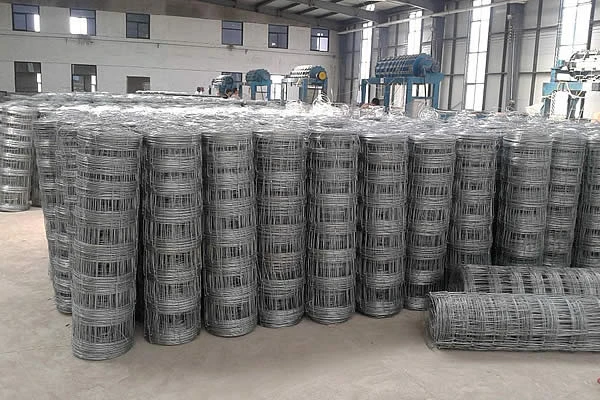 TEL:
+86-13102802206
TEL:
+86-13102802206
 Email:
fencenetting@china.com
Email:
fencenetting@china.com
 Language
Language
 TEL:
+86-13102802206
TEL:
+86-13102802206
 Email:
fencenetting@china.com
Email:
fencenetting@china.com
 Language
Language


The Versatility and Benefits of Wire Netting Fencing
Wire netting fencing has become an increasingly popular choice for a variety of applications, ranging from agricultural settings to residential areas. This versatile fencing solution offers numerous advantages, making it an essential element for many projects. In this article, we will explore the features, benefits, and various uses of wire netting fencing.
What is Wire Netting Fencing?
Wire netting, often referred to as wire mesh or welded wire fencing, consists of woven or welded wire strands that create a robust barrier. This type of fencing is available in different materials, including galvanized steel, stainless steel, and vinyl-coated wire, which enhance its durability and resistance to rust and corrosion. The mesh is typically made in various gauge thicknesses and hole sizes, making it suitable for numerous applications.
Key Benefits of Wire Netting Fencing
1. Durability One of the primary advantages of wire netting fencing is its strength and longevity. Properly installed wire netting can withstand harsh weather conditions, making it ideal for outdoor use. The materials used in manufacturing provide resistance to rust and rot, ensuring that the fence remains functional for years.
2. Cost-Effectiveness Compared to traditional wooden or brick fencing, wire netting is often more affordable and requires less maintenance over time. With its longevity, the initial investment in wire netting can lead to significant savings in the long run.
3. Visibility Wire netting fencing allows for visibility and ventilation while still providing effective boundaries. This transparency can help maintain the aesthetic appeal of a property and prevent an enclosed feeling in gardens or yards.

4. Versatility Wire netting is incredibly versatile and can be used for a variety of purposes. Whether used to create a perimeter around a garden, to corral livestock, or as a protective barrier to keep wildlife out, wire netting can adapt to various needs. Additionally, it is available in different heights, making it suitable for both low and tall applications.
5. Easy Installation Installing wire netting fencing is a relatively straightforward process. Homeowners and farmers alike can often complete installation without the need for professional help, depending on the size and scope of the project. The lightweight nature of the material allows for easy handling and adjustment during installation.
Common Applications of Wire Netting Fencing
Wire netting fencing is utilized across various sectors. In agriculture, it is often used to enclose livestock, keeping animals safe while protecting crops from browsing wildlife. Similarly, gardeners use it to ward off rabbits and other animals that can damage plants.
In residential areas, wire netting can serve as a decorative fence combined with wooden posts or other materials, allowing homeowners to define their property boundaries while maintaining an open atmosphere. It is also effective as a safety measure for swimming pools or playgrounds, ensuring children and pets remain within a secure area.
Moreover, wire netting is frequently employed in commercial settings to create secure enclosures for storage areas, enhancing safety in warehouses and factories.
Conclusion
Wire netting fencing represents a practical solution for various fencing needs. With its durability, cost-effectiveness, versatility, and ease of installation, it has become a preferred choice for homeowners, farmers, and businesses alike. Whether used for agricultural purposes, residential boundaries, or commercial security, wire netting fencing provides a reliable and functional solution to keep spaces defined and protected. As we continue to seek efficient and sustainable options for fencing, wire netting remains a top contender in the world of fencing solutions, proving that simplicity can indeed be powerful.